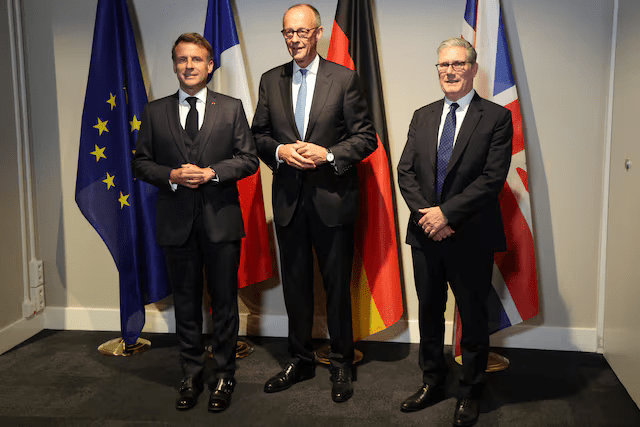Russian assets in Europe. How they can work for Ukraine
global.espreso.tv
Fri, 10 Oct 2025 21:33:00 +0300

To finance Ukraine's needs, the European Union must use frozen Russian assets, and there is no alternative, Danish Prime Minister Mette Frederiksen said in an interview with the Financial Times.How did it happen that the issue of support for Ukraine for the world's largest economies depends on frozen assets that have been unusable for several years?Since the start of the full-scale invasion, the EU has frozen around €300 billion. Of this, approximately €200 billion is held in Belgium — in a financial institution that holds funds that Russia had previously invested in European securities.Europeans cannot simply confiscate this money, as no EU country is formally at war with Russia. Therefore, legislation on the assets of an aggressor state does not apply. So all the options currently being considered are based on attempts to find a legal scheme to leave the money formally Russian, but in fact be able to use it to support Ukraine.The question is: how does all this relate to the security guarantees that the Coalition of the Willing is talking about?No Western country wants to fight for Ukraine. Even the boldest statements from partners concern the deployment of small contingents far from the combat zone. It is obvious that such forces will be more symbolic in nature and will not affect the real defense of Ukraine in the event of new aggression.The most that can be expected is military-technological assistance, participation in the rearmament of the Ukrainian army, and ensuring the financial stability of the economy. In other words, financial rather than military security guarantees, similar to those currently in place.Frozen Russian assets could help rebuild the economy after the war ends. But if they start using them now, a logical question arises: what security guarantees will Ukraine have left afterwards?The expected Ukrainian budget deficit for 2026 will be about $60 billion. This does not take into account military needs, which could double the deficit. If this deficit is covered by frozen Russian assets, they will last for about two years. This will certainly help now, but at the same time, it will call into question Europe's ability to ensure Ukraine's stability after the war.It is clear that Russia will never get back the assets frozen due to its aggression. And the fact that Europe is close to deciding to actually seize them and use them to help Ukraine is definitely a plus.But if the EU truly wants long-term peace on the continent, it needs to look for solutions that provide real and lasting security guarantees for Ukraine, not just a way to hold out for a few more years.Ukraine's security is part of Europe's own security. Security that can be ensured either with frozen assets or with our own blood.SourceAbout the author. Mykola Knyazhytskyi, journalist, Member of Parliament of UkraineThe editorial team does not always share the opinions expressed by the authors of blogs or columns.










